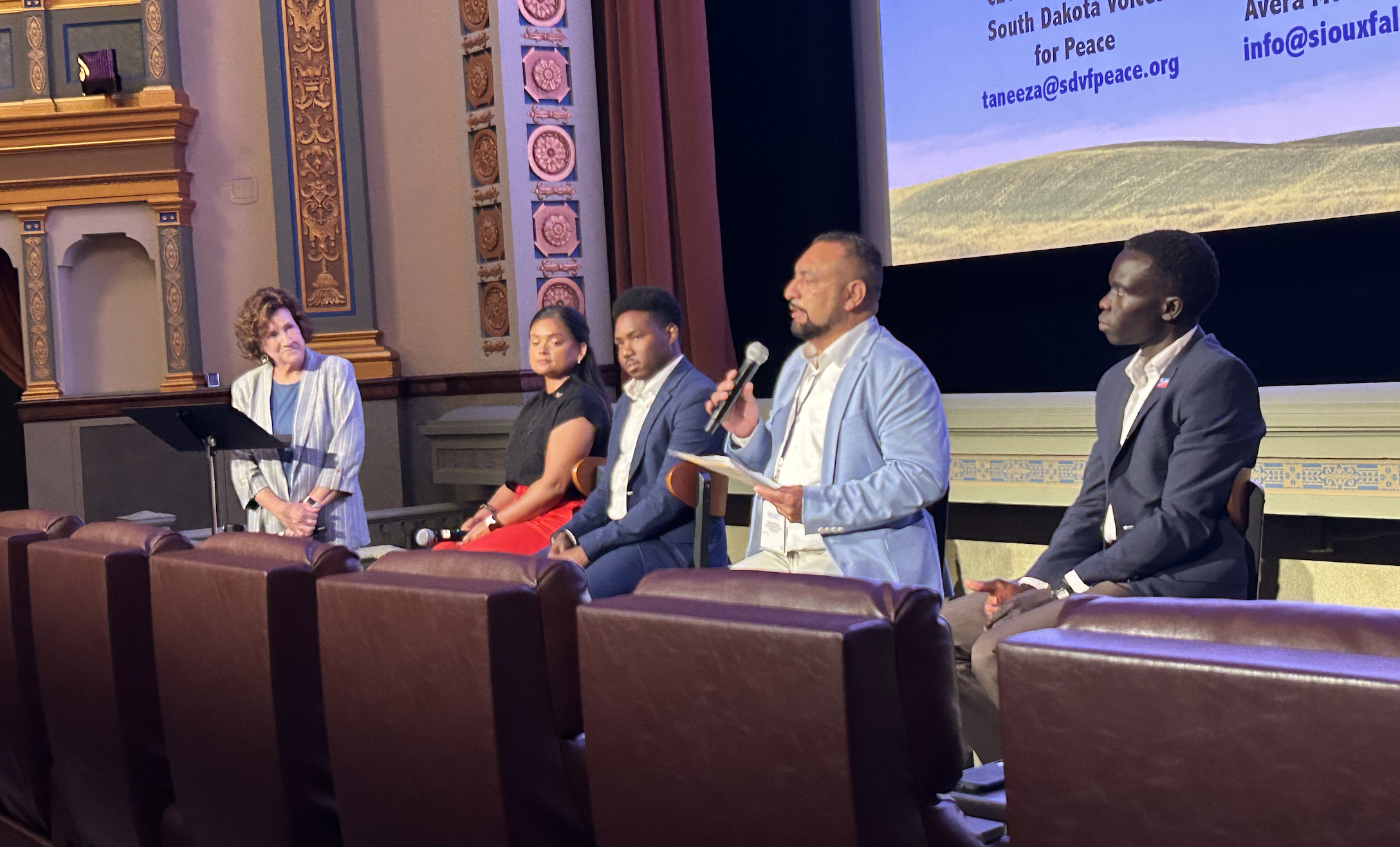Simplified: People coming to Sioux Falls from other countries are a major contributor to the city's growth, economy and nonprofit sector. A panel Thursday morning at the State Theatre featured a heartfelt and vulnerable discussion on the importance of immigration and refugee resettlement in our community. Here's a deeper look.
Why it matters
- There are an estimated nearly 43,000 immigrants in South Dakota, according to the American Immigration Council. For context, that's about how many people live in Aberdeen and Mitchell combined. Additionally, nearly 400 people came to Sioux Falls last year through refugee resettlement programs.
- Thursday's discussion, hosted by Sioux Falls Thrive and the South Dakota NewsMedia Association, featured a panel of immigrants and refugees – all of whom are now community leaders.
"The only reason Sioux Falls is growing is because immigrants are coming here," said Taneeza Islam, founder of S.D. Voices for Peace and herself a first-generation immigrant.
- Panelists shared their personal stories of what brought them to Sioux Falls, as well as broader thoughts on the challenges, prejudices and dangers faced by immigrants and refugees in the current political climate.
"We're all here to build a better society," said Zak Okuwe, a cardiac nurse at Sanford Health and founder of STEM the Gap nonprofit who came to the United States as a refugee from Sudan when he was 9 years old.
Tell me more about the panel
Thursday's discussion was hosted as part of a conference for the International Society of Weekly Newspaper Editors (ISWNE).
Discussion focused not only on the experiences of immigrants and refugees, but also on the importance of storytelling as a way to build empathy and share the reality of what people are facing right now.
- Islam described a clear separation in Sioux Falls.
"There's the community who fears every minute of ICE (immigration and customs enforcement)," Islam said. "And then there's the other community who does not feel that."
She shared the example of a family who was scared to drop their kid off at the airport over fears of being detained.
Isn't the U.S. a 'nation of immigrants'?
Historically, yes. But pathways to come to the country have grown fewer and fewer under the Trump administration, panelists noted.
The U.S. is no longer accepting refugees, asylum has ended, and there's no legal way for a person to enter the United States by foot, Islam said.
"The absolute reality is there really is minimal opportunity to come to the United States right now," she added.
What is the role of immigrants and refugees in Sioux Falls today?
It's not all that different from anyone else who lives here, panelists said.
- People who've come here from other countries are starting businesses, buying homes, filling jobs, sending their kids to school, running local nonprofits and more.
They're also helping the next generation of immigrants and refugees. Panelist Moses Idris, a community outreach consultant at Avera and Lutheran Social Services board member, founded nonprofit Light for the Next Generation because he saw the need for structured activities for kids – particularly refugee kids – in Sioux Falls.
- Now, eight years in, Idris' nonprofit is serving 200 kids, some of whom have gone on to play college soccer or enroll in local universities.
Okuwe founded STEM the Gap, a nonprofit aimed at exposing more young kids to careers in science, technology, engineering and math.
Panelist Hugo Barron is president of Sioux Empire Housing Partnership, a nonprofit that helps connect low-to-moderate income families with housing opportunities.
- Barron immigrated to the States from Mexico at age 13. In Thursday's discussion, he stressed the importance of shifting the narrative that immigrants are a "burden" to society and instead see the essential contributions they make as workers, neighbors and active participants in making Sioux Falls better.
Idris echoed those comments, sharing his own experience of living in a refugee camp for 10 years after escaping war in Ethiopia. He recalled learning that his family would be coming to the United States and the excitement they felt – shared by many of the folks coming here.
"They're not coming here just to come here and life a better life," Idris said. "They want to contribute ... they're excited to come here. Their contribution is real."


